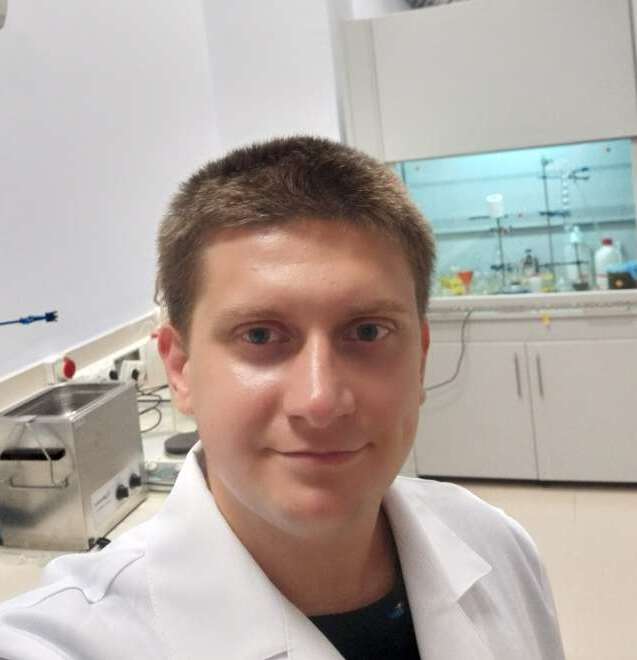
Scientific Horizons of Karazin University: Senior Lecturer of the Department of Applied Chemistry Denys Chudak on Fundamental Research, Practical Developments, and Innovative Solutions
Denys Chudak, a Senior Lecturer at the Department of Applied Chemistry, School of Chemistry, V. N. Karazin Kharkiv National University, has been awarded the Cabinet of Ministers of Ukraine Scholarship for Young Scientists.
Denys Chudak combines fundamental research with practical developments, creating innovative solutions applicable in various fields, from medicine to materials science. His achievements, including the development of sensors and research on anti-cancer compounds, already make a significant contribution to modern chemistry.
What aspects of chemistry fascinate you the most, and how did you choose this path?
I wanted to create something that would help humanity and be accessible to everyone. To invent something useful that wouldn't become expensive or unattainable for ordinary people. The major fundamental discoveries in chemistry were made a century or two ago when science was developing rapidly. Today, making a discovery on that scale is extremely difficult. That’s why I have always been drawn to applied chemistry, which allows us to create drugs, compounds, or materials for everyday use.
Even in school, chemistry became a true passion for me. It is a science that explains many of the childhood “Why?” questions. I wanted to know more, even though I understood that it was impossible to grasp everything. However, chemistry is the tool that allows us to get at least a partial understanding of the world. In my work, I combine fundamental research with practical applications. For me, it is important to create things that work here and now.
What are your main scientific achievements? How would you explain them to someone who is not a chemist?
Chemistry is both simple and complex. We constantly interact with it in our daily lives, often without realizing it. For example, baking soda helps remove grease from kitchen surfaces due to the hydrolysis of fats in an alkaline environment.
One of our group's achievements is the development of a sensor for Helicobacter pylori. It is a very simple and inexpensive device that works similarly to police breathalyzers. Such technologies help detect diseases, and we continue improving this direction.
Another important area of research is the synthesis of complex compounds with anti-cancer and antibacterial properties. I am also working with metal-organic frameworks, which are a kind of "hot trend" in modern chemistry. They have great potential for energy storage, filtration, and catalysis.
How did you react to the news of receiving the Cabinet of Ministers of Ukraine Scholarship?
It was a very pleasant surprise. Such awards confirm that your work is noticed, and this motivates you to keep moving forward. Receiving this scholarship is not just a personal achievement; it is recognition of scientific contributions. It gives confidence and reassures me that my work is meaningful.
Why do you think support programs for young scientists are important?
First and foremost, they provide an incentive to stay in science, as it can be quite challenging for young researchers in our country. Low salaries, insufficient research funding, and lack of modern equipment drive many to seek better conditions abroad.
I say this because I recently had the opportunity to intern in Slovakia at Pavol Jozef Šafárik University in Košice, where I worked with colleagues on a project related to the synthesis and study of complexes with anti-cancer and anti-tumor properties. It was, so to speak, a "Disneyland" for a chemist — modern equipment, access to instruments.
However, programs like the Cabinet of Ministers scholarship can motivate scientists to stay and work in their home country. It’s not just a chance for personal growth but also an opportunity to create conditions for the development of science in Ukraine.
Why is it important for Ukrainian scientists to stay in the country? How can they influence its development?
It would be a waste to invest our potential in the development of other countries. We grew up here, and we want our children to grow up in Ukraine with decent conditions and a quality education. This is only possible if we support and develop science at a proper level.
Back in school, my teacher once said, "There may come a time when you will have to teach your own children." These words often come to mind now when I realize that change begins with each of us.
One day, the war will end, and Ukraine will need young professionals to rebuild the country. If everyone leaves, there will be a huge gap in education and science that will be nearly impossible to fill. A new generation is growing up now, and it is our responsibility to pass on knowledge and skills to them.
How has student interest in chemistry changed during the period of online learning?
Chemistry is a science that must be studied in a laboratory. Behind a screen, it is impossible to fully conduct an experiment or experience all the nuances of the process — such as seeing color changes in a reaction or even feeling with your hands how a reaction mixture heats up.
All of this is important not only to observe but also to experience firsthand. Among students, interest in offline classes remains very high. Whenever possible, they come to the laboratory for practical work in a safe environment, and they find it incredibly exciting. Those who cannot attend genuinely envy those who can.
As one student said: "If they announce the return to in-person learning tomorrow, I'll pack my bags and move into the dormitory immediately."
What advice would you give to students and young researchers just starting their journey?
The first and most important thing is not to stop. Believing in your work is crucial! Then, learn to enjoy your achievements. Always take time to appreciate the results of your work, as this will serve as a source of inspiration for further research.
And remember that we, scientists, are not that numerous. So even if your contribution seems like just a grain of sand on a vast beach, it still matters. Every small piece of knowledge pushes science forward.



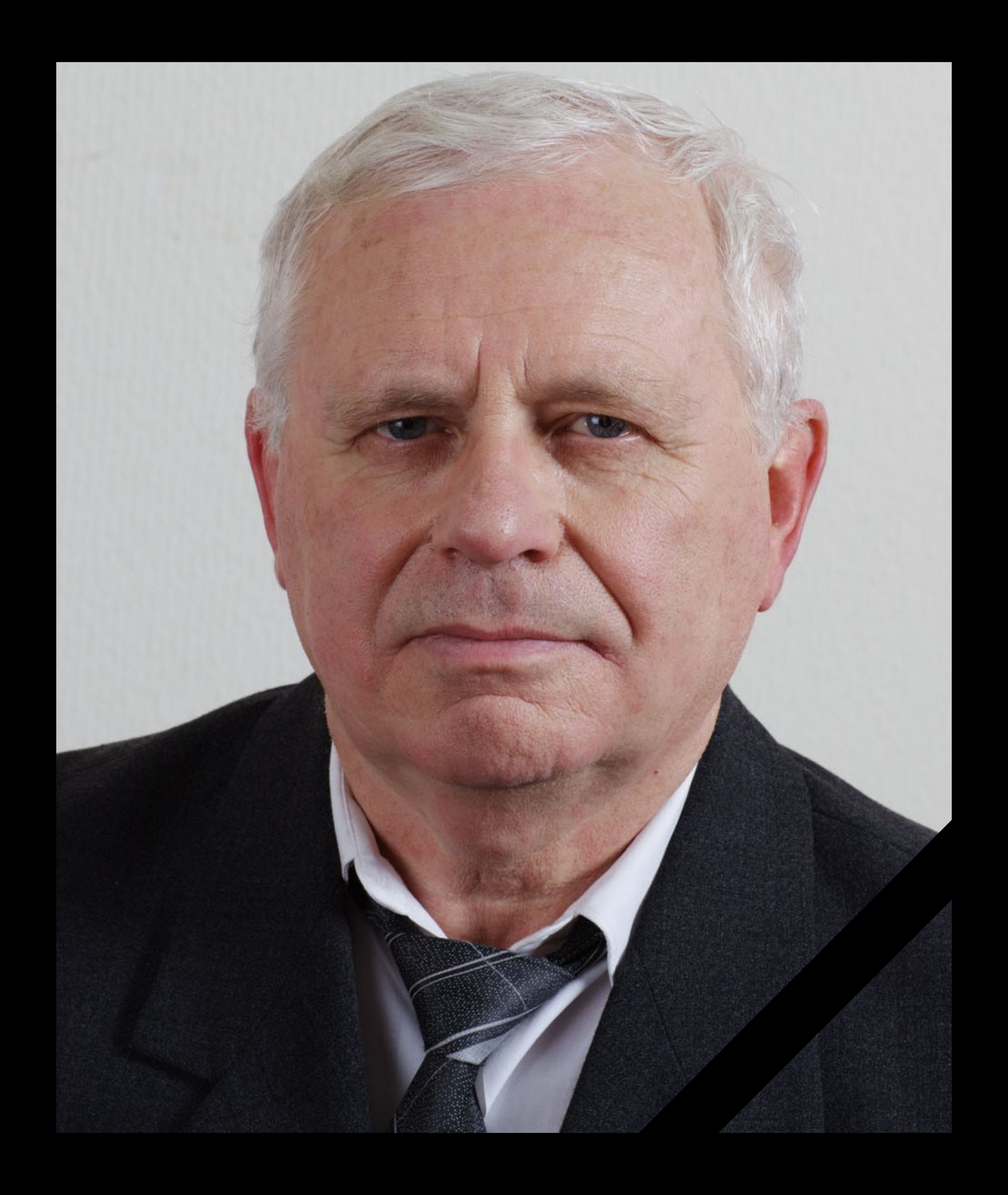
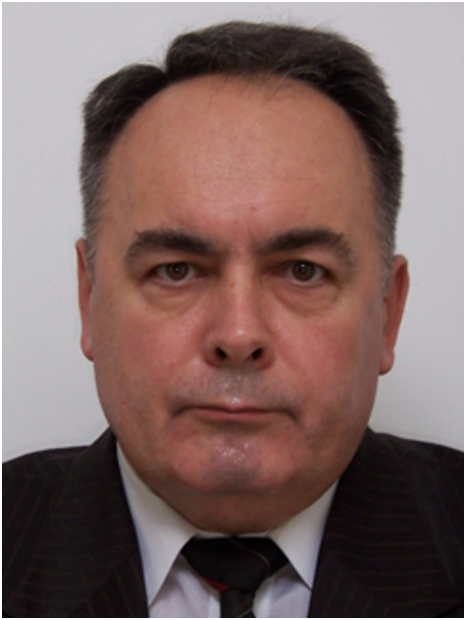


.png)
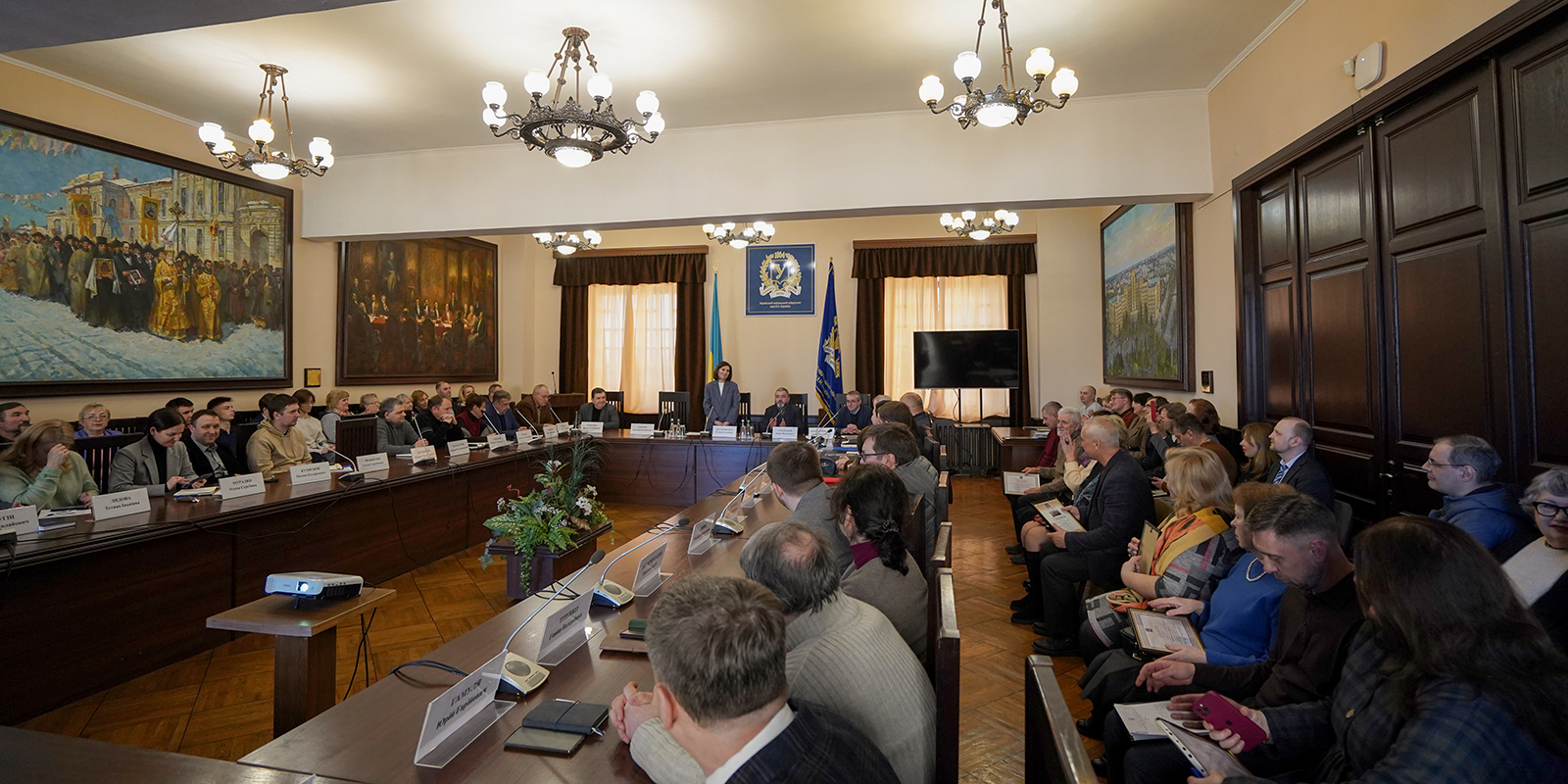
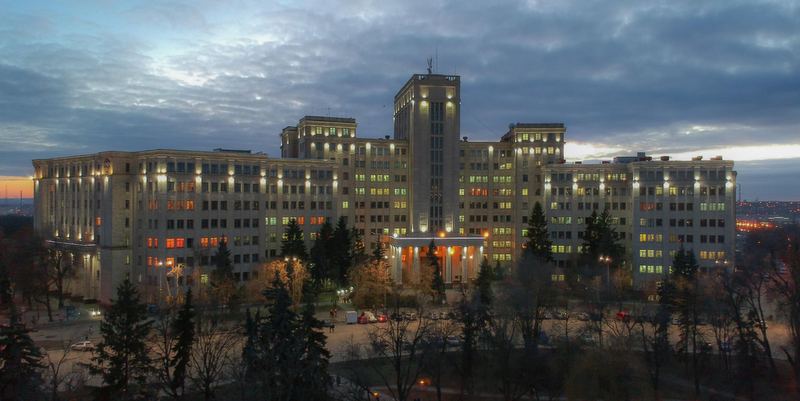
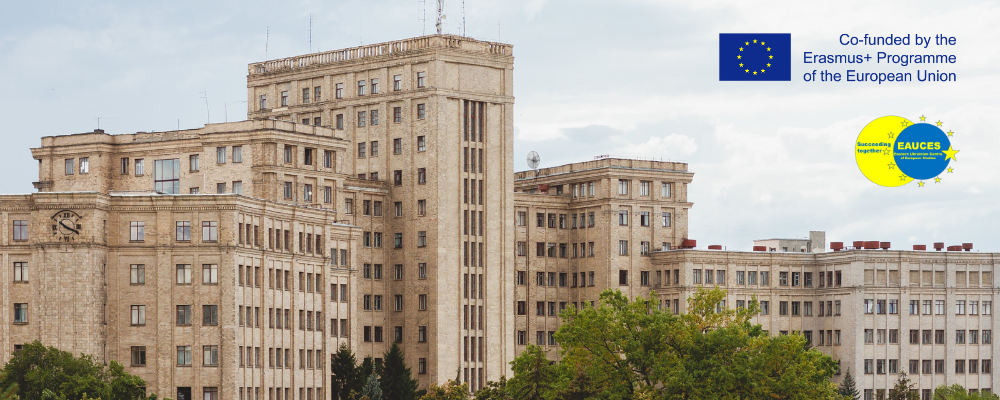
.jpg)
.png)